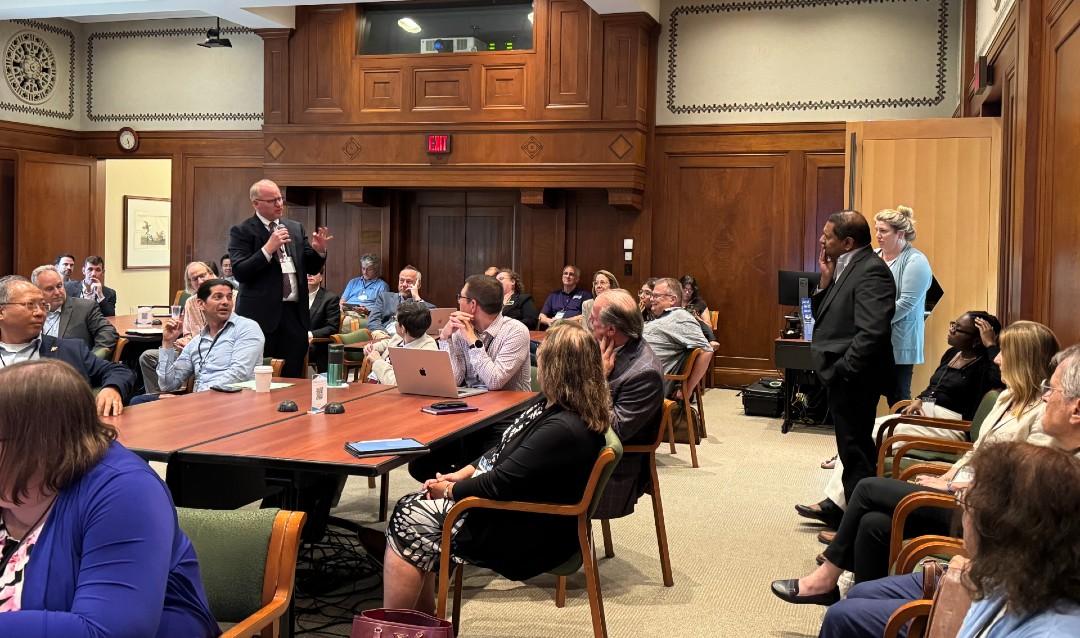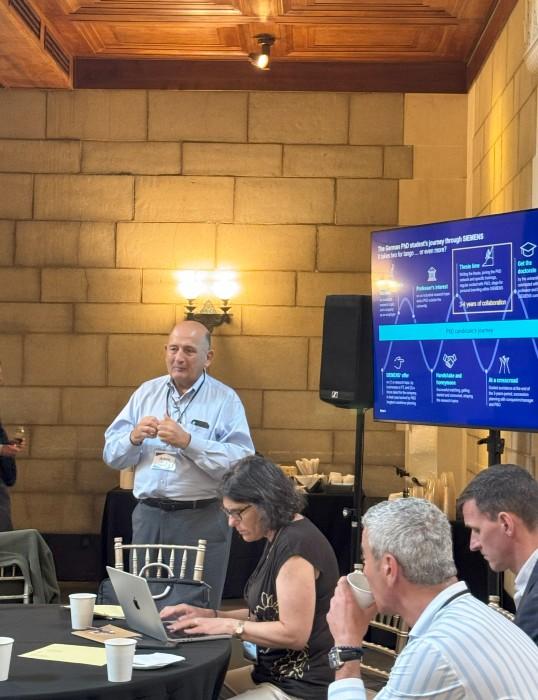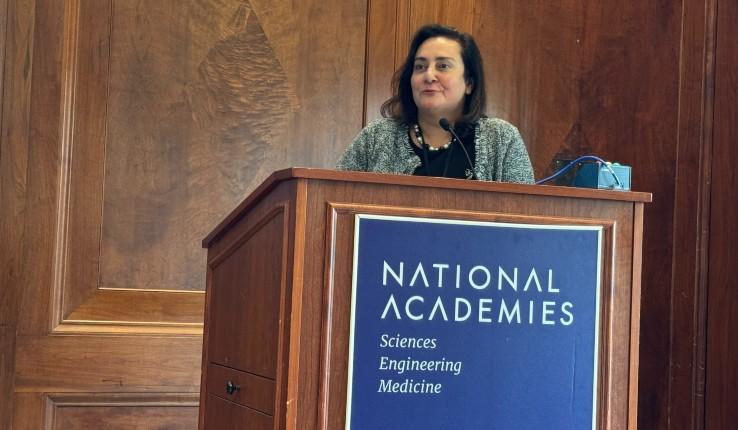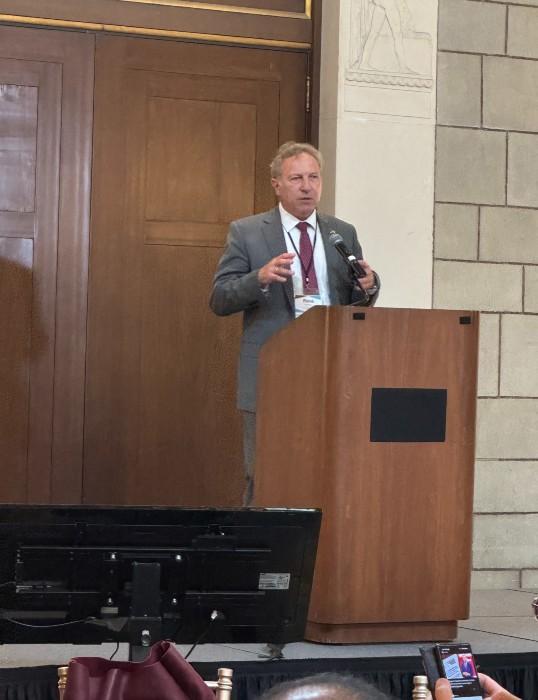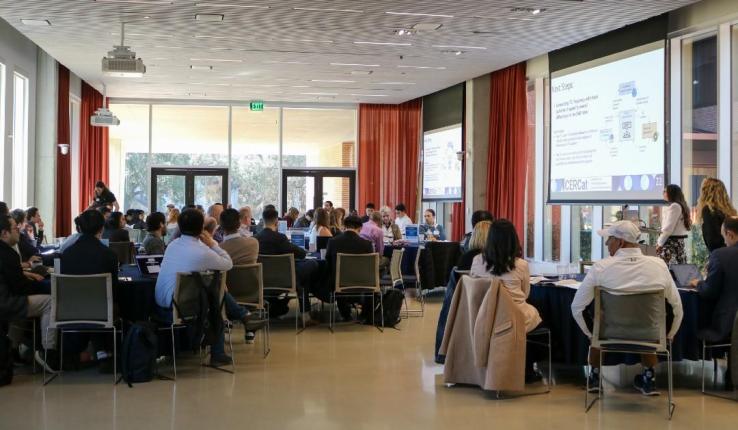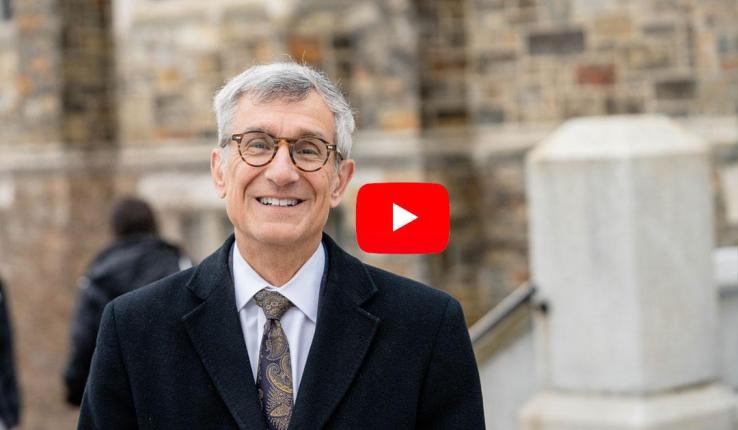The workshop included small group discussions focusing on finding solutions to one of the three specific challenges. Above, Arturo Pizano, program manager, Siemens Research and Innovation Ecosystems, leads the discussion with industry perspective on the financial model for supporting doctoral training.
Despite these obstacles, there was strong agreement that the traditional PhD model must evolve.
“PhD education must evolve to meet the realities of today’s research and innovation landscape,” Provost Nathan Urban said. “Our students need rigorous training in scholarship, but also opportunities to collaborate across disciplines, engage with industry and government, and translate their expertise into real-world impact. By rethinking how we prepare the next generation of researchers, we can ensure that doctoral education remains both relevant and transformative.”
Himanshu Jain, Lehigh's T.L. Diamond Distinguished Chair in Engineering and Applied Science and professor of materials science and engineering, agreed after attending the workshop.
“There were ample differences of perspectives, which were discussed constructively, and the desire to find solutions prevailed,” Jain said. “The success of the workshop stemmed from the fact that the participants were leaders who were directly engaged in doctoral training every day - they are stakeholders from private corporations, academia, national labs, funding agencies, professional societies, nonprofits like National Academies and Council of Graduate Schools, and international experts from countries that have successfully formed industry-university partnerships, thus covering the grounds comprehensively. We are grateful for their support for taking action to make the cultural change for preparing PhDs for the careers they will most likely pursue.”


